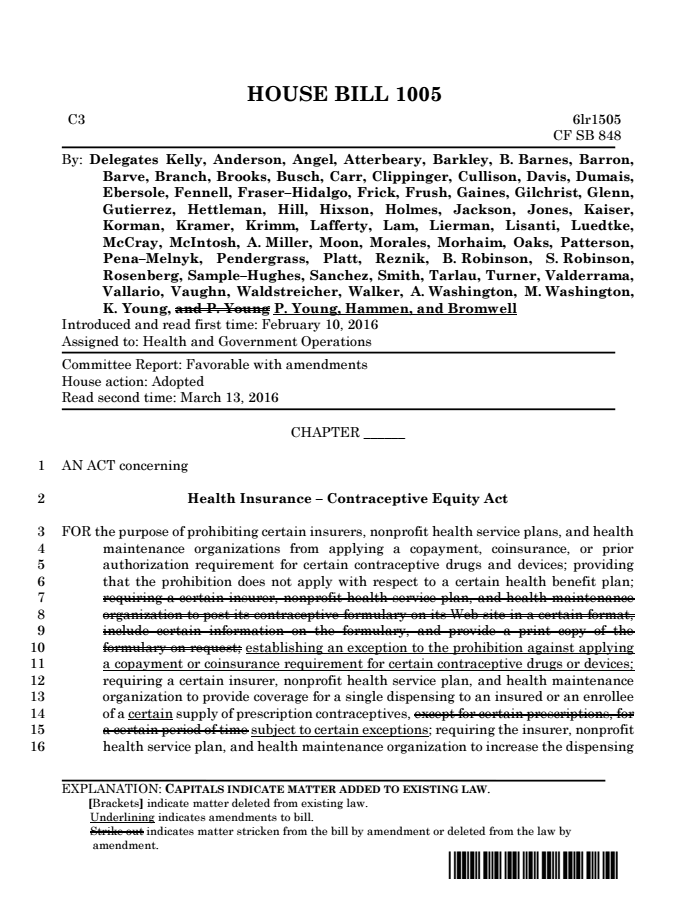
Maryland Gov. Larry Hogan signed the Contraceptive Equity Act into law Tuesday, requiring all insurance companies to offer free over-the-counter and prescription birth control.
The act will eliminate most co-pays for over-the-counter methods of birth control for insured Maryland residents, as well as vasectomies for men.
Maryland is the first state to require insurance companies to cover emergency contraceptives such as the morning-after pill, which costs between $35 and $60 in most states.
The act also requires people to obtain up to a six-month supply of birth control at a time, eliminates requirements of a prescription for over-the-counter birth control, and ends pre-approval requirements for long-acting reversible contraception such as IUDs.
The Affordable Care Act — commonly known as Obamacare — requires all of its insurance plans to offer free birth control, but many insurance plans only cover a certain type of birth control which may have negative side effects for certain women and not others, while ones that work for them are not covered.
The Maryland Contraceptive Equity Act, passed with lobbying help from Planned Parenthood, is designed to push these requirements to all insurance providers state-wide.
"We wanted to make sure that whatever different form of birth control people were choosing, they would be covered for it," the main sponsor of the bill, Delegate Ariana Kelly, told BuzzFeed News.
Kelly, a Democrat from Montgomery County, said that she and her delegates came up with the bill last summer when states across the country were defunding Planned Parenthood. Kelly wanted to introduce a bill that would continue to give women free access to family planning in the midst of nationwide attacks on the women's health group.
She added that the biggest struggle was with insurance companies who worried that not charging for the morning-after pill and providing six months of birth control at a time could waste pills and increase costs.
The Maryland law will go into effect Jan. 1, 2018, which will allow time for insurers to prepare for the 2017 open-enrollment season.
Other states, such as California, Colorado, Massachusetts, and North Carolina, have passed similar contraceptive equity laws, though many of them do not include vasectomies or the morning-after pill.
Religious organizations that provide healthcare for their employees are exempt from the act under Maryland state law and can choose not to cover birth control. This exemption is common in many other states with contraceptive equity laws.
The National Women's Law Center has a full list of state-by-state contraceptive equity laws and what they apply to.

